


The recommendation presented in this document were developed by the Center for the Study of Democracy, based on discussions held during the Bulgarian-American Economic Cooperation Forum, and subsequent consultations with a variety of the participants. These recommendations do not necessary reflect the views of the Bulgarian and American institutions represented at the forum.
More...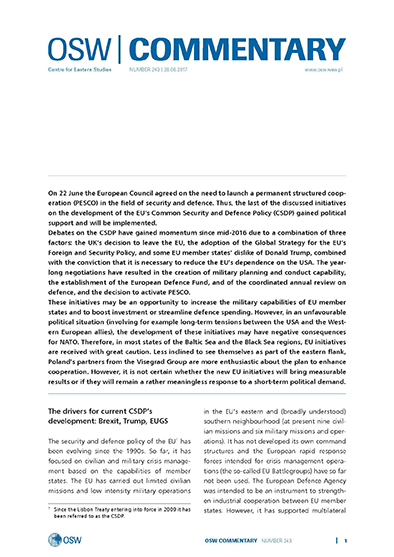
Keywords: Turkey; state’s reconstruction
The purges in the state apparatus which have been underway in Turkey since the failed military coup represent a decisive stage in the construction of a ‘new Turkey’, involving both the final elimination of the remaining elements of the old Kemalist establishment and the crackdown on the group centred around Fethullah Gülen, a preacher and former government ally accused of plotting the coup. The authorities view him as the greatest threat. In a broader context, the aim of the purges is to ultimately replace the present elites with new ones. This may lead to the elimination of any conceivable opposition capable of threatening the rule of President Recep Tayyip Erdoğan.
More...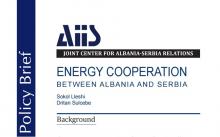
Keywords: Western Balkan; Energy Union; Energy Cooperation
The energy sector constitutes one of the most strategic sectors of the economy, which is part of the EU policy recently framed as Energy Union. The Western Balkan is considered an important area for the diversification of the energy production and transmission in Europe. This region increases the chances that the EU attains energy security. It has been a long term concern of the EU to reduce the energy dependency from external countries such as Russia. On the other hand, as in the case of most EU policies, the Energy Union and the relevant acquis on energy aim to initiate market reforms in the energy sector, to reduce the monopoly position of firms and state subsidies, and enhance cooperation on energy trade and exchange between countries as well as aim towards a coal-free energy production in a sustainable environment mostly based on renewable energy.
More...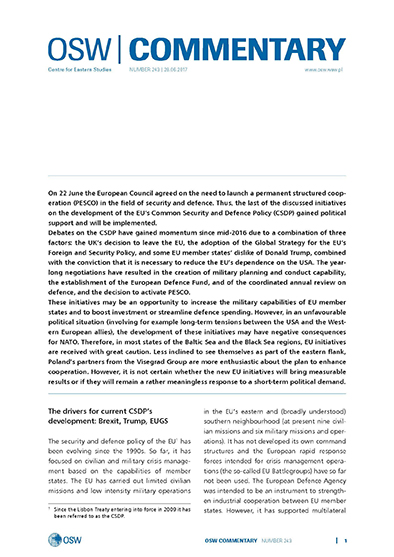
Keywords: coal energy industry in Germany; energy
Germany’s current energy strategy, known as the “energy transition”, or Energiewende, involves an accelerated withdrawal from the use of nuclear power plants and the development of renewable energy sources (RES). According to the government’s plans, the share of RES in electricity production will gradually increase from its present rate of 26% to 80% in 2050. Greenhouse gas emissions are expected to fall by 80–95% by 2050 when compared to 1990 levels. However, coal power plants still predominate in Germany’s energy mix – they produced 44% of electricity in 2014 (26% from lignite and 18% from hard coal). This makes it difficult to meet the emission reduction objectives, lignite combustion causes the highest levels of greenhouse gas emissions. In order to reach the emission reduction goals, the government launched the process of accelerating the reduction of coal consumption. On 2 July, the Federal Ministry for Economic Affairs and Energy published a plan to reform the German energy market which will be implemented during the present term of government. Emission reduction from coal power plants is the most important issue. This problem has been extensively discussed over the past year and has transformed into a conflict between the government and the coal lobby. The dispute reached its peak when lignite miners took to the streets in Berlin. As the government admits, in order to reach the long-term emission reduction objectives, it is necessary to completely liquidate the coal energy industry in Germany. This is expected to take place within 25 to 30 years. However, since the decision to decommission nuclear power plants was passed, the German ecological movement and the Green Party have shifted their attention to coal power plants, demanding that these be decommissioned by 2030 at the latest.
More...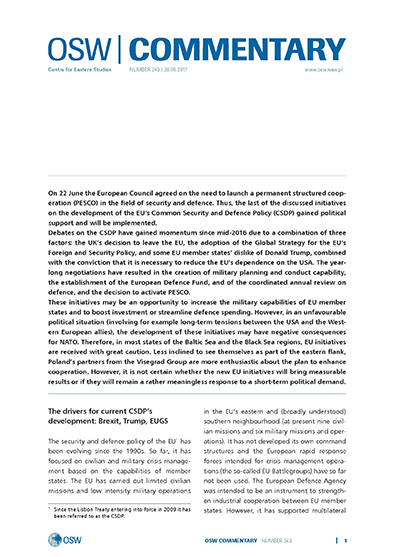
Keywords: Kharkiv oblast; Donbas; Ukraine
Kharkiv oblast, which is located in the immediate vicinity of the Donbas region, and which shares a 315-km stretch of Ukraine’s border with Russia, was one of the regions where attempts were made to kindle separatist sentiments during the spring of last year. Some central government buildings were briefly occupied by pro-Russian demonstrators who declared a ‘Kharkov People’s Republic’, but efficient countermeasures by the Ukrainian institutions of force quickly calmed the situation in the region. However, the oblast still remains a target for acts of sabotage, which are probably directed by Russian secret services. Nevertheless, the situation in the region is now stable, both in terms of public sentiment and local politics. The main competitors in the arena of local politics are Hennadiy Kernes, the mayor of Kharkiv, and Arsen Avakov, the current head of the Ukrainian Interior Ministry. Despite many years of hostility, neither of the politicians appears to have initiated a power struggle as yet – Kernes retains his influence on the city council, and Avakov controls the local security services.
More...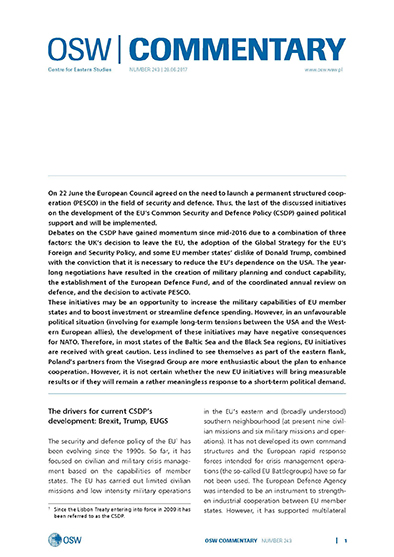
Keywords: Germany; arms industry
Due to changing internal and external conditions, the German arms industry is facing serious challenges as are its counterparts across Europe. The arms sales market in Germany is contracting – orders from the Bundeswehr are slowing down and the Federal Ministry of Defence is planning to change the way it cooperates with German arms producers. In addition, member states of NATO and the EU, major customers of German arms manufacturers, are reducing their defence spending, which will spell a fall in their orders for new armament and military equipment. In response to the new circumstances, the German arms industry is beginning to organise itself and increase its lobbying efforts in Berlin and, with the support of the federal government, it has been implementing specific measures in several areas. German companies are interested in securing new markets outside NATO and the EU and are also exploring opportunities for mergers and joint ventures with other German and foreign companies, and are seeking to create more conducive conditions for business on the EU and NATO markets.
More...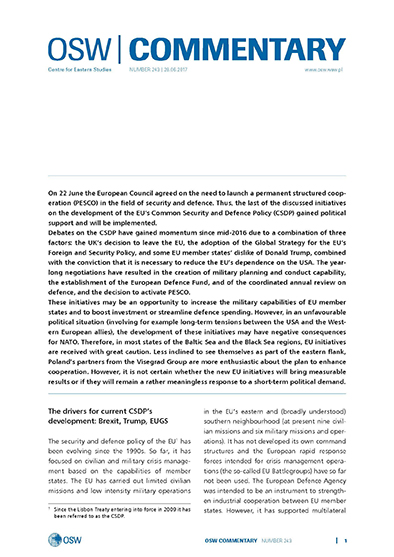
Keywords: Christian Democrats; Germany
The political campaign before Germany’s parliamentary elections to be held on 22 September has in all its glory reflected the trends visible during the last four years of the government of Chancellor Angela Merkel – the strength of the Christian Democrats, the weakness of the opposition and the increasing marginalisation of the coalition partner, the FDP. The CDU/CSU remains the most popular political choice in Germany, largely because Angela Merkel has consistently remained the most popular German politician. Everything indicates that the CDU/CSU will win the election, even though it has been running a passive campaign and the Chancellor herself has been avoiding confrontation, presenting herself as a kind of cross-party representative of the interests of all social groups. The Christian Democrats’ main competitors, the Social Democrats, have been unable to play to their strengths and present themselves as a serious alternative to the CDU/CSU. The Christian Democrats, despite their difficult cooperation with the liberal FDP, have declared their willingness to continue doing so during the next parliamentary term. If the numbers make that impossible, and the Social Democrats and the Greens have too few votes to be able to form a government, a grand coalition of the Christian Democrats and the SPD will be formed in Germany.
More...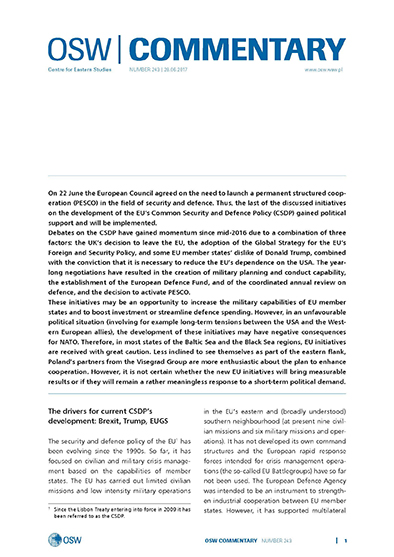
Keywords: Russia; Asia
The APEC[1] summit in Vladivostok (8-9 September) was expected to confirm Russia’s ambitions to play a more significant role in the Asia-Pacific region (particularly in East Asia) [2] and balance Moscow’s foreign policy by shifting some of its focus from Europe to Asia. The measures taken ahead of the summit included both the implementation of economic projects in Russia’s Far East and greater diplomatic engagement in the region. The summit itself, however, was less effective than expected.Russia failed to define its place in the Asia-Pacific order, and did not propose any new political or economic initiatives that would go beyond the discussions that have already been held within APEC for years, including plans for a free trade area.
More...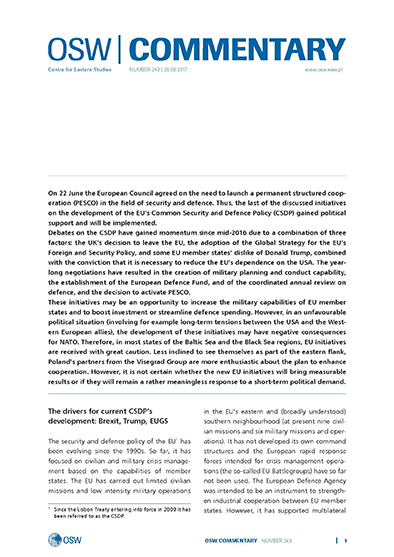
Keywords: fiscal compact; European Union; Germany
On 2 March, the leaders of 25 EU member states signed the Treaty on stability, coordination and governance in the economic and monetary union. It will introduce new fiscal constraints and officially vest new competences in the eurozone countries.Thus, their right to coordinate economic policy among them will be sanctioned. So far, the Lisbon Treaty has only provided for organisation of informal Eurogroup meetings, to be attended by representatives of the European Commission. The principles introduced by the compact, if the eurozone countries are really determined to observe its provisions, will create a new way of managing the single currency. Within the next few years, the most indebted countries will have to carry out radical reforms to boost their competitiveness and adjust it to German standards. During this period the Federal Republic of Germany will most probably decide to offer higher loan guarantees to relieve these countries’ budgets. The compact’s political consequences are also of great significance, especially considering how the treaty was finalised. The eurozone states have in fact accepted that the direction for changes will be devised by France and Germany, and the role of European institutions such as the Commission or the Parliament may weaken. From the perspective of eurozone candidate countries, the introduction of the fiscal compact means expanding the scope of conditions they must meet to become members of the single currency area. In the future, a country, in order to adopt the single currency, will have to meet the structural deficit criterion, and also most probably carry out economic reforms such as unifying its fiscal system. These goals will be achieved across the eurozone gradually, in the subsequent stages of the economic governance reform.
More...
Keywords: Basic Rights in Housing; Basic Rights in Education; Basic Rights in Access to Health-Care; Hate speech against Roma;
More...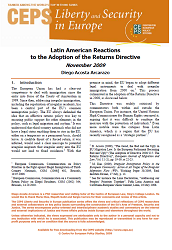
Keywords: Adoption of the Returns Directive; Latin America; EU; Immigration;
The European Union has had a clear-cut competency to deal with immigration since the entry into force of the Treaty of Amsterdam in 1999. Since then, addressing irregular immigration, including the repatriation of irregular residents, has been a central part of the EU’s common immigration policy. The EU always defended the idea that an effective returns policy was key to ensuring public support for other elements in the policy, such as legal migration and asylum.
More...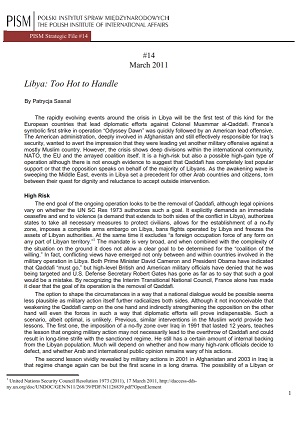
Keywords: Libya; international relations; diplomacy; security and defence; NATO; crisis; high-risk operations;
The rapidly evolving events around the crisis in Libya will be the first test of this kind for the European countries that lead diplomatic efforts against Colonel Muammar al-Qaddafi. France’s symbolic first strike in operation “Odyssey Dawn” was quickly followed by an American lead offensive. The American administration, deeply involved in Afghanistan and still effectively responsible for Iraq’s security, wanted to avert the impression that they were leading yet another military offensive against a mostly Muslim country. However, the crisis shows deep divisions within the international community, NATO, the EU and the arrayed coalition itself. It is a high-risk but also a possible high-gain type of operation although there is not enough evidence to suggest that Qaddafi has completely lost popular support or that the opposition speaks on behalf of the majority of Libyans. As the awakening wave is sweeping the Middle East, events in Libya set a precedent for other Arab countries and citizens, torn between their quest for dignity and reluctance to accept outside intervention.
More...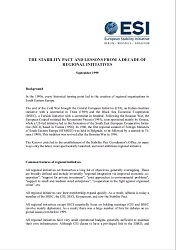
Keywords: transformation iin Bosnia-Herzegovina;
Now that the prospects of an immediate agreement on implementing the Constitutional Court’s decision on constituent peoples are receding, the High Representative and the PIC Steering Board need to decide whether to use the High Representative’s authority to impose a package of amendments to the Entity constitutions. … Among Bosnian politicians and the Sarajevo-based press, this issue has been presented in terms of the “legacy” of the departing High Representative – his last opportunity to bequeath a multi-ethnic system of government to the Bosnian people. They have dared him to impose far reaching changes, particularly in Republika Srpska, or else leave behind an important job unfinished. … This paper argues that the tough decision is to resist these pressures and refrain from imposition.
More...
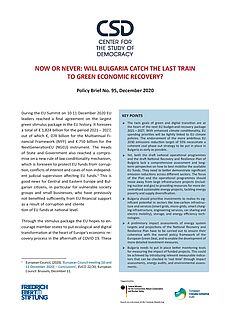
The twin goals of green and digital transition are at the heart of the next EU budget-and-recovery package 2021-2027. With enhanced climate conditionality, EU spending priorities will be tightly linked to EU climate policies. The endorsement of the more ambitious EU 2030 emissions reduction target of 55% necessitate a coherent coal phase out strategy to be put in place in Bulgaria as early as possible.Yet, both the draft national operational programmes and the draft National Recovery and Resilience Plan of Bulgaria lack a comprehensive assessment and long term perspective on how to best mobilise the available EU funds. They need to better demonstrate significant emission reductions across different sectors. The focus of the Plan and the operational programmes should move away from large infrastructure projects (including nuclear and gas) to providing resources for more decentralised sustainable energy projects, tackling energy poverty and supply diversification.
More...
Keywords: presidential elections;trust in political leaders;voting intentions;
The survey was conducted on July 17-23, 2019 on 1128 selected subjects from 114 urban and rural localities in all counties of Romania. He measured confidence in political leaders, voting intentions, comparisons between candidates.
More...
Keywords: Covid-19 pandemic; WHO; First infections in Italy; China; USA; Vaccine; Wuhan;
O korona virusu trenutno postoje tri vrste informacija. Imamo zvanične informacije iz izveštaja zajedničke misije Svetske zdravstvene organizacije i kineskog Centra za kontrolu i prevenciju bolesti od 28. februara (o tim podacima više u daljem tekstu), kao i zvanične informacije iz područja najvećih svetskih žarišta i istraživačkih centara. Imamo neke nezvanične ali pouzdane informacije koje nam govore o pravim razmerama pandemije. I imamo gomilu nepouzdanih (dez)informacija na koje ne vredi trošiti vreme. Nezvanično, situacija na severu Italije i (za sada obuzdana) situacija u kineskoj provinciji Hubei su mnogo gore nego što se dana slutiti iz zvaničnih medija.
More...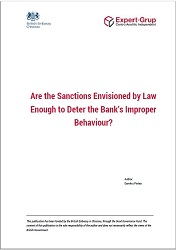
Keywords: Banking Sector Moldova;
To protect the interests of depositors and to maintain the stability of financial system, the central banks or other assigned institutions have the duty to ensure the regulation and prudential supervision of commercial banks. These objectives can’t be achieved unless prudential norms and indicators are established, their compliance is monitored, and if appropriate, sanctions are imposed to prevent and limit the risks. In addition, taking into account the possibility to calibrate risks, the sanctions aim to correct the modus operandi of the bank as a whole, and individually, of key persons, who ultimately decide on the level of assumed risks. The international financial leaders have reached a consensus on the need to strengthen supervision and prudential regulation framework because of pressing negative effects and frequency of banking crises. The new Basel III Agreement is the outcome of many debates and covers a number of reference norms designed to reform and strengthen the worldwide financial industry. As regards the relevant intervention measures and sanctions, the new provisions aim to standardize both their level and implementation mode or triggering conditions. Though the new provisions fundamentally affect the bank’s profitability, a number of countries started to implement them in 2011, being aware of the need to maintain the macro-prudential balance.
More...
Keywords: refugees; immigrants; social distance.
The survey was conducted between March 9-20, 2022 on a sample of 800 people living in 220 urban and regional localities in all counties of Romania, with a statistical error of +/- 3.5%. He measured the attitude of Romanians towards refugees from Ukraine, but also from other geographical regions. Compared to the similar research in October 2021, there was a 25% increase in the favorable attitude towards refugees, and it is the highest increase among young people, those with higher education, employers, those living in very large cities. Romanians are favorable to the entry of refugees from Ukraine and hypothetically from Moldova, but more reluctant to those from Asia, Africa, Latin America or the Caucasus. Romanians’ self-esteem has significantly increased for the exemplary way in which their fellow citizens have been involved in helping refugees in Ukraine, although they are aware that there is a risk of upsetting the Russian Federation.
More...